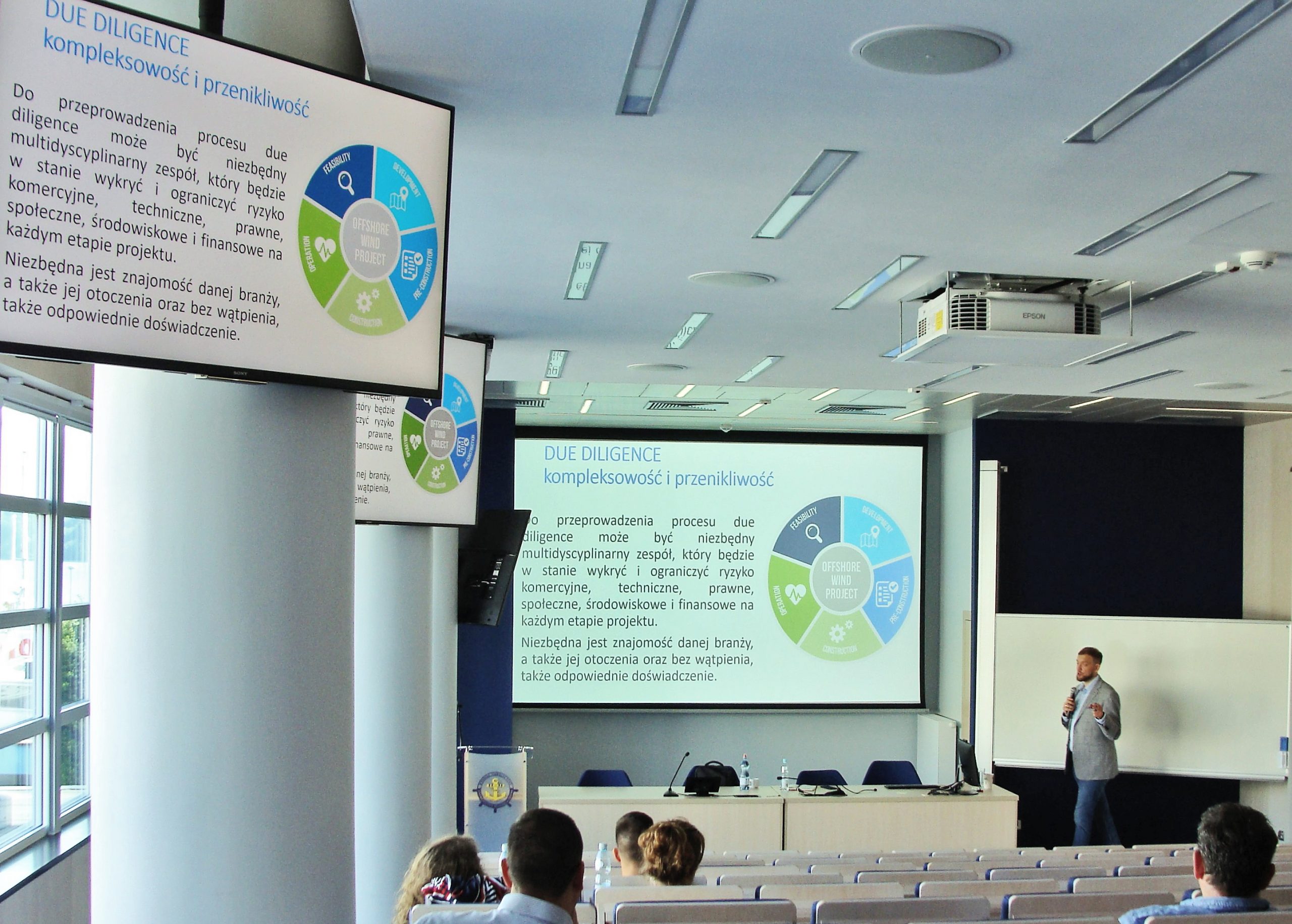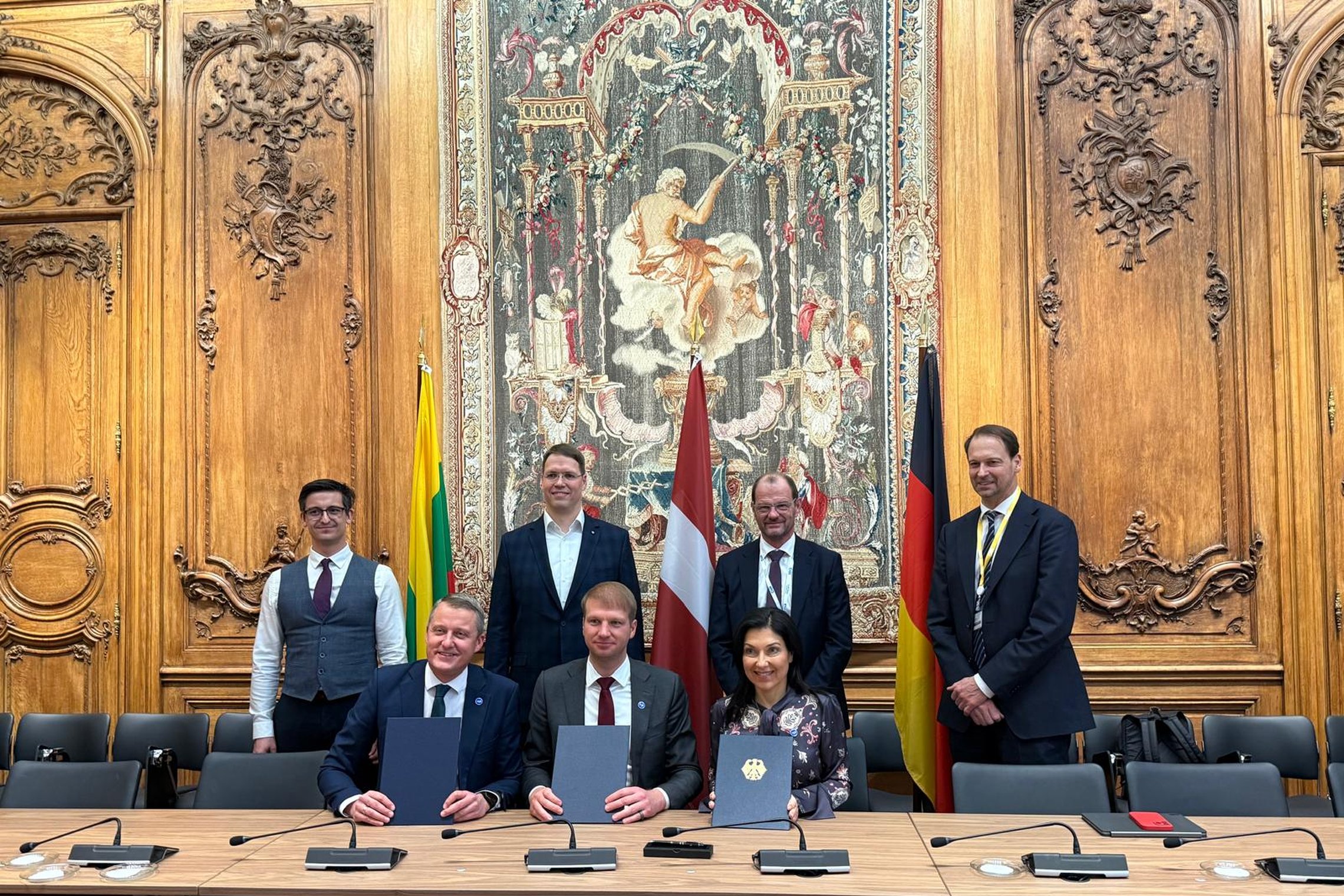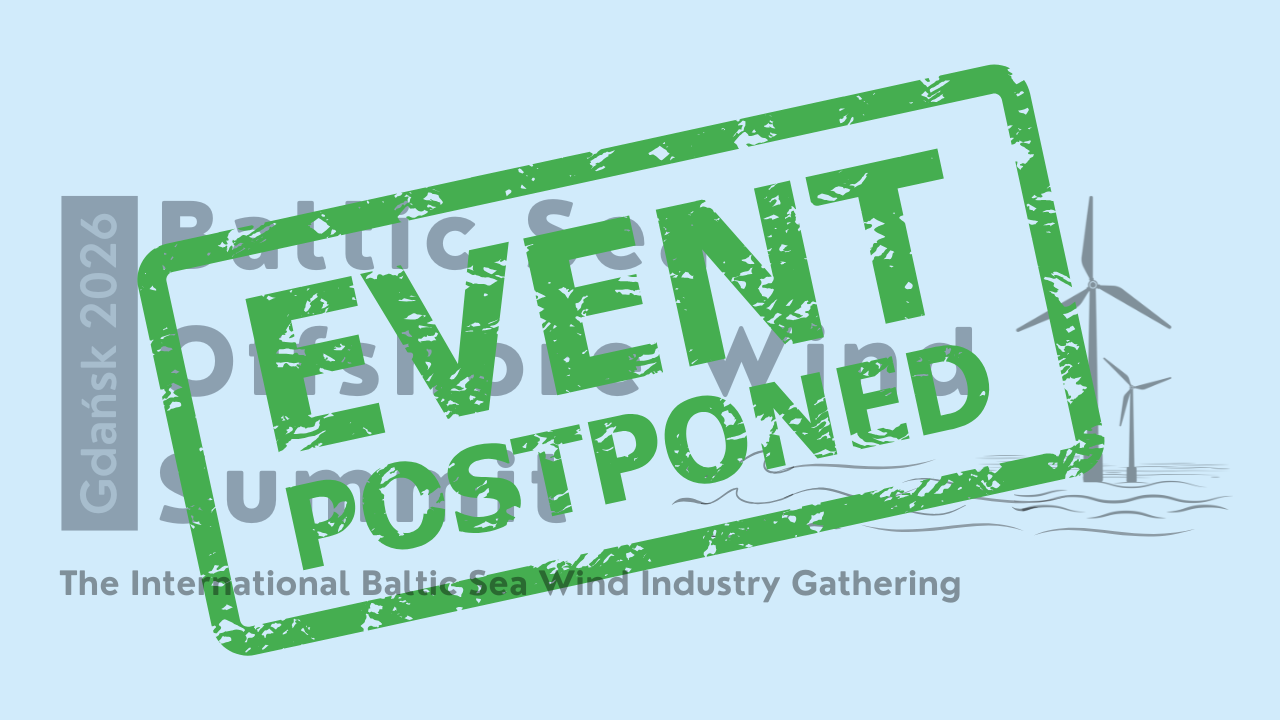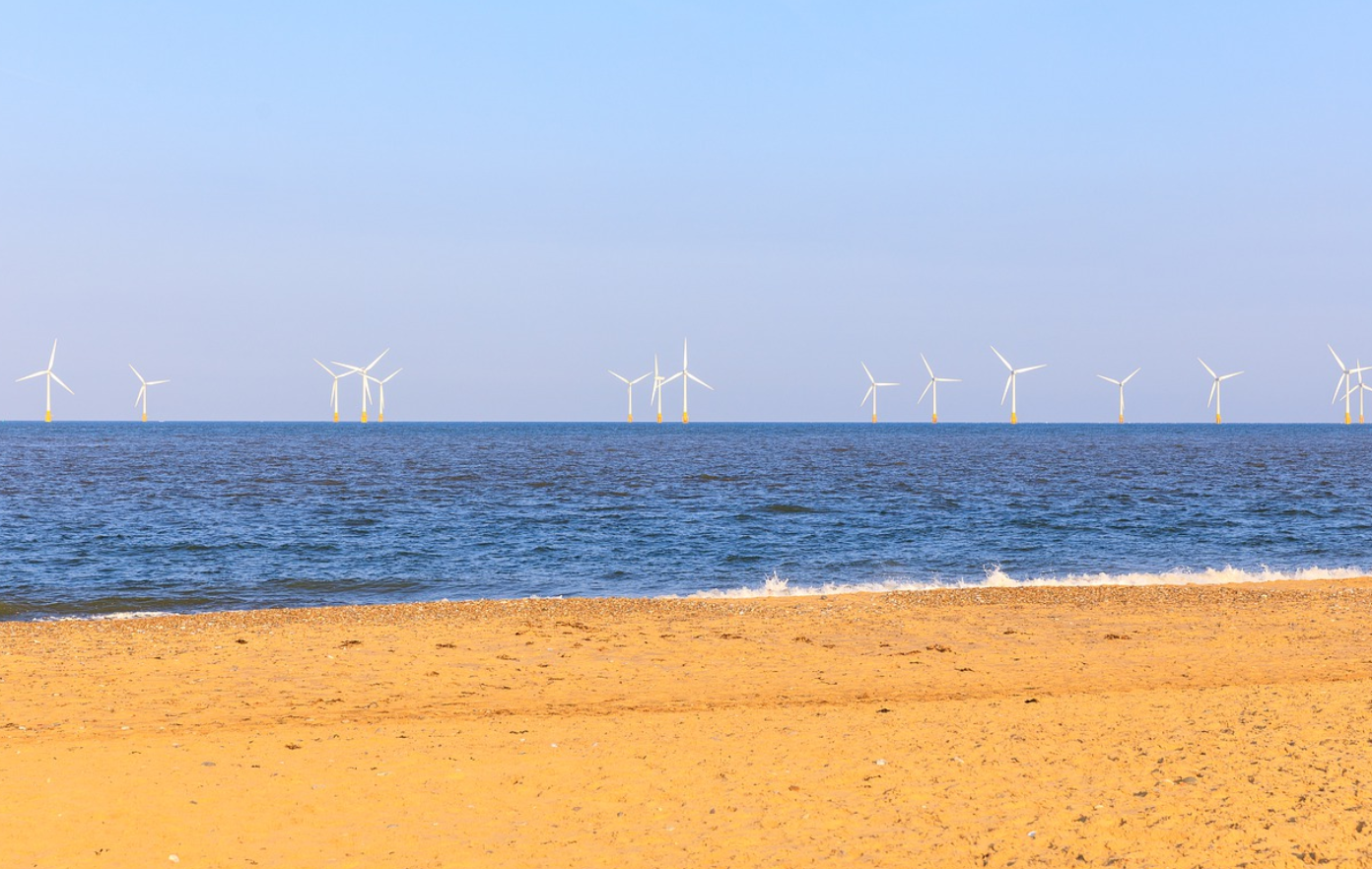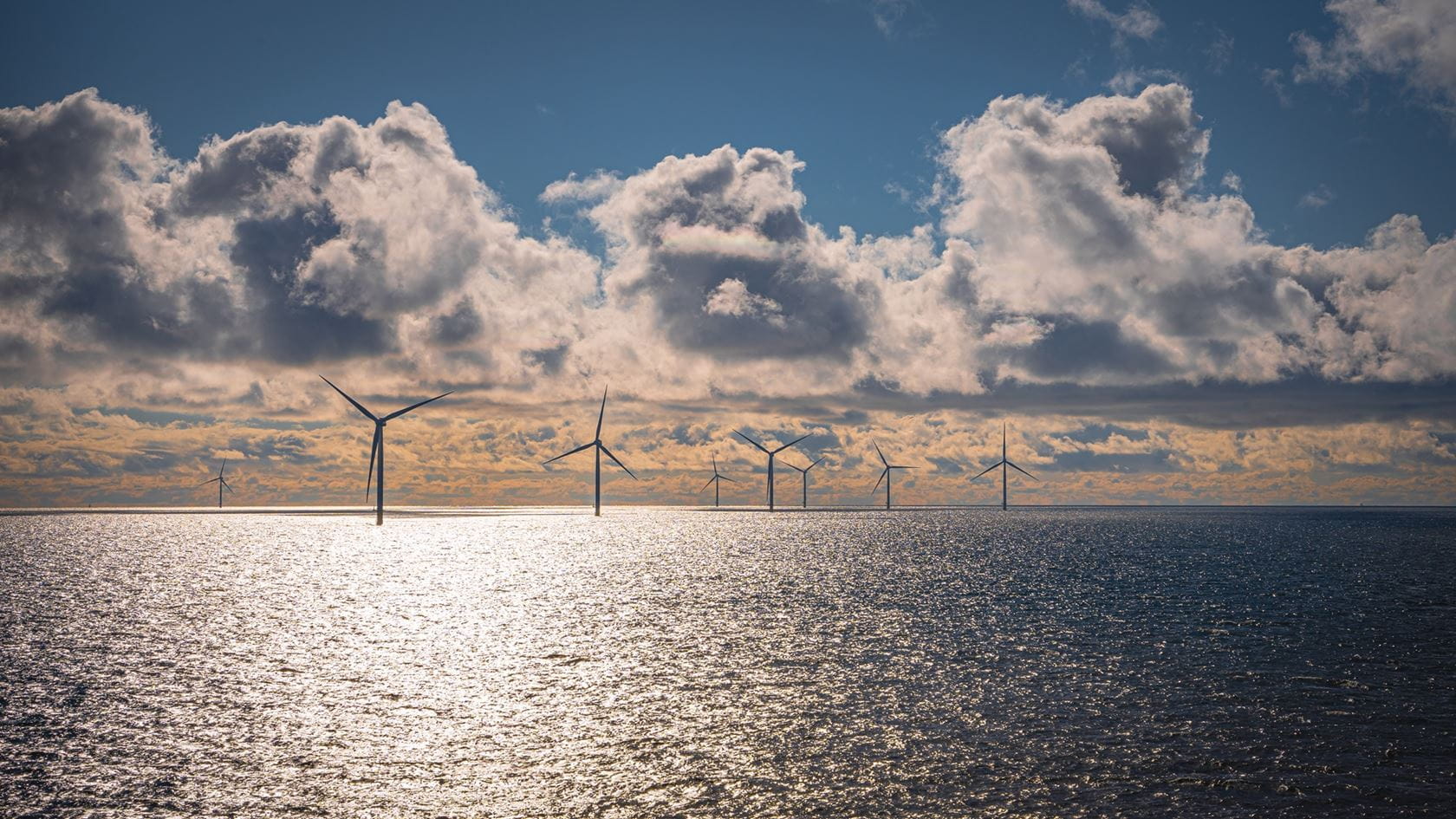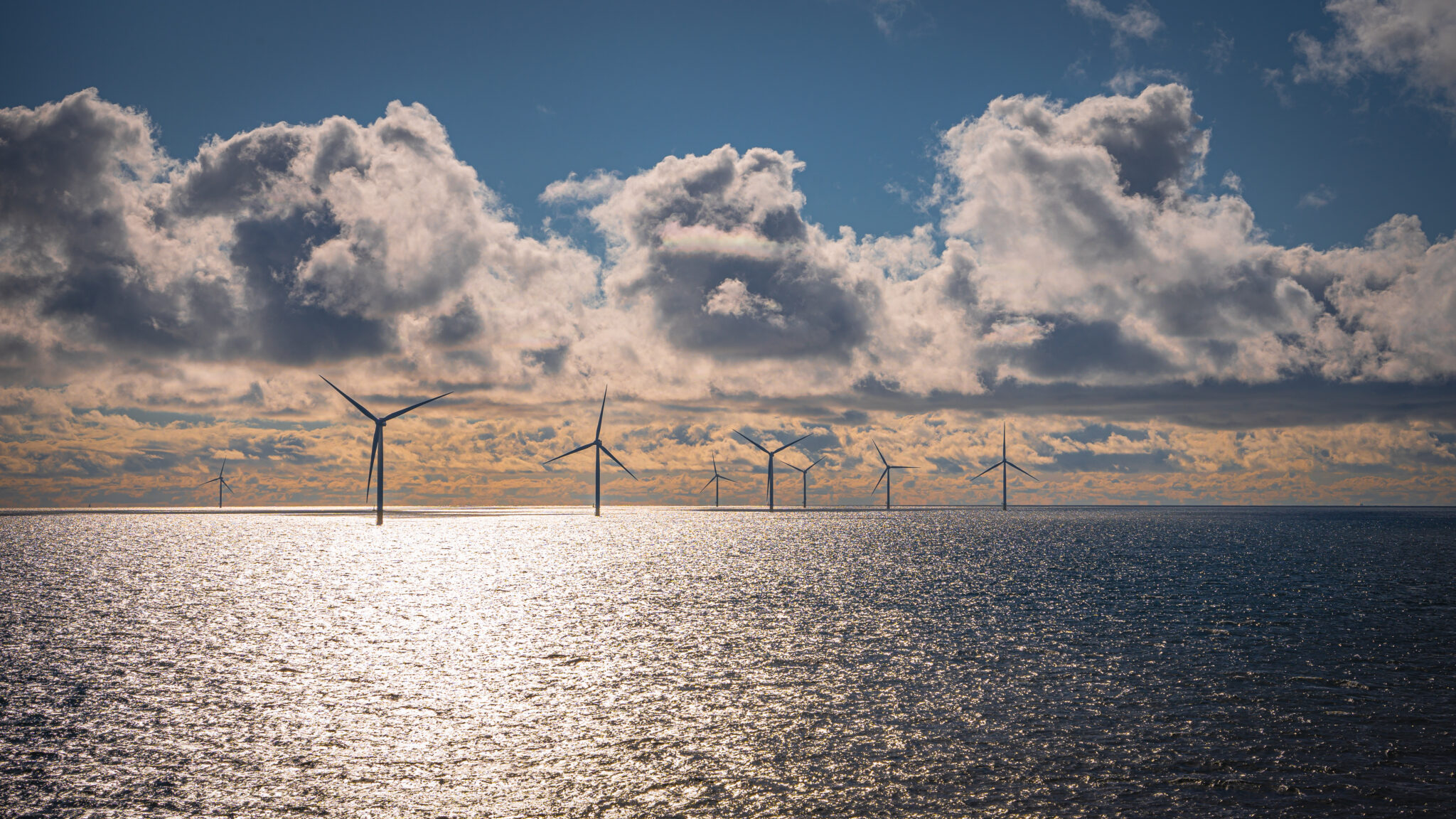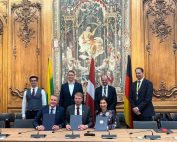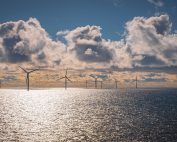The offshore wind energy labour market in Poland could create up to 80,000 new jobs over the next few years. A major challenge will be the preparation of qualified personnel. One of the universities that is responding to market needs is the Gdynia Maritime University. In February, the first graduates of the one-year postgraduate course ‘Risk Management in the Offshore Mining Industry and Wind Energy’ will leave the walls of the university, with the next edition starting in March. Recruitment is ongoing. PGE Baltica, PGE Group’s company, is the main partner of the studies.
The postgraduate studies are intended for managerial and technical staff of companies with offshore operations – both in the offshore wind and oil & gas industries.
Knowledge transferred in practice
– When creating the programme of postgraduate studies, we tried to select such a subject matter which would complement the offer of postgraduate studies present on the market, says Agnieszka Blokus-Dziula, Head of Postgraduate Studies. – Our studies combine the knowledge of broadly understood risk management in projects, regardless of the industry, with knowledge strictly related to offshore wind energy and the offshore industry, adds Agnieszka Blokus-Dziula. During the two semesters of study, students attended classes that lasted a total of 190 hours. A feature that characterises and distinguishes these studies is the practical dimension of the knowledge imparted.
The area of the Baltic Sea is 397,978 km2. The estimated potential for offshore wind energy development in this area is 93 GW, one third of which is in the Polish part of the Baltic Sea.
– Theoretical knowledge, but without being overly academic, combined with practical knowledge provides a strong foundation in terms of knowing and understanding the risks in the offshore sector. It is a powerful load of information, definitely accelerating the understanding of the offshore wind and oil & gas sector, assesses Konrad Wróbel, an offshore wind professional and risk management practitioner. - From my perspective, studies have allowed me to acquire knowledge that could have taken several years to complete without the studies. I see a clear professional progression. Combining these studies with professional practice is the best thing we can do for ourselves if we are serious about dealing with the offshore industry in our careers, he adds.
How do you plan for risk?
Risk management planning and its appropriate control and management in projects is an essential factor at every stage of project implementation, such as when preparing contracts, carrying out expert appraisals, planning component deliveries, planning construction, maintenance and repair tasks and many other activities.
During the first edition of the studies, Rafał Żendarski, senior manager for port and offshore logistics of offshore wind farms at PGE Baltica, introduced the students to topics relating to the offshore wind industry in its broadest sense. – As a typical practitioner with many years of experience working at sea, I also conducted a case study based on real analytical documentation, thus familiarising the students with conducting risk assessments in real working conditions on ships, says the PGE Baltica expert about the classes he conducted. The company is the main partner of these postgraduate studies.
10 – that is the number of wind farm projects currently underway in the Polish Exclusive Economic Zone of the Baltic Sea.
– Risk management is a key issue for the offshore industry and for many reasons. Not only does it provide the basis for ensuring the feasibility of investments, it is also the basis for making business decisions and directly affects the costs of projects, not to mention the health and lives of people involved in them, notes Łukasz Sikorski, a lecturer at the postgraduate programme and Director at Offshore Wind Consultants. – The students of the first edition had a chance to take part in exercises based on real and very up-to-date case studies – they conducted the legal and technical due diligence process for offshore project acquisition transaction and analysed risks related to investing in the Polish offshore wind energy industry, elaborates Łukasz Sikorski.
– For those who are professionally involved in the offshore energy sector, these studies are time well invested. By learning about risk management tools in a practical manner, students learn to act more efficiently, faster and more effectively, basing their decisions on the knowledge they have also gained during their studies, adds another lecturer, Robert Grzegorowski from RWE Renewables. In his opinion, learning project risk topics in practice develops strategic thinking and builds courage in making difficult business decisions.
Traditional and online formula
The above arguments are reflected in the opinion of the audience. Maciej Nowakowski, who works in regional government, sees the offshore industry as an epochal development opportunity due to its scale. – Offshore wind energy represents an opportunity, but also challenges and risks. Studying at GMU allows even students who are not professionally involved in the offshore industry to identify them. The selection of problem areas and speakers – mainly practitioners specialising in a given field – allows one to learn about the entire spectrum of the offshore industry from environmental issues to engineering specifics or legal conditions, he concludes.
In turn, according to another student, Filip Babiak, who works in the shipbuilding industry, the creation of offshore wind farms is an opportunity for the maritime and shipbuilding industry. – A great advantage of the studies is that the classes are also available online, which allows students working at sea to participate, he says.
Even more practice
– In the next editions of the studies, we intend to increase the number of hours of practical classes – exercises and workshops – and we plan to enrich the programme with a few new issues, in total there will be 210 hours of classes during two semesters, informs Agnieszka Blokus-Dziula, adding that Piotr Kubala, Head of Geology Offshore Wind w PGE Baltica, will join the group of lecturers. – I am glad that I will be able to pass on to the students my knowledge and experience gained from conducting geological work for the offshore oil & gas and offshore wind energy industries. Assessing the geological risk of investment throughout the project cycle is one of the key elements of conducting any project of this type, says Piotr Kubala.
The start of the second edition of the postgraduate studies is scheduled for 4 March 2023. The recruitment process conducted by the Gdynia Maritime University will end on 31 January.
Postgraduate studies in numbers:
95% of the students positively evaluate the usefulness of acquired information in terms of improving their own competences and skills.
90% of students rate the usefulness and likelihood of using the knowledge as high and very high.
26 students attended 190 hours of classes during the 2 semesters of the first edition of the studies.
210 hours of classes are scheduled for the second edition of the studies.
Recruitment deadline for the next edition of studies – 31 January 2023.
Start of the second edition of the studies – 4 March 2023.
